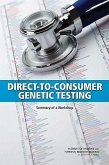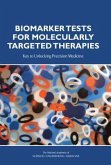Technologies collectively called omics enable simultaneous measurement of an enormous number of biomolecules; for example, genomics investigates thousands of DNA sequences, and proteomics examines large numbers of proteins. Scientists are using these technologies to develop innovative tests to detect disease and to predict a patient's likelihood of responding to specific drugs. Following a recent case involving premature use of omics-based tests in cancer clinical trials at Duke University, the NCI requested that the IOM establish a committee to recommend ways to strengthen omics-based test development and evaluation. This report identifies best practices to enhance development, evaluation, and translation of omics-based tests while simultaneously reinforcing steps to ensure that these tests are appropriately assessed for scientific validity before they are used to guide patient treatment in clinical trials.








